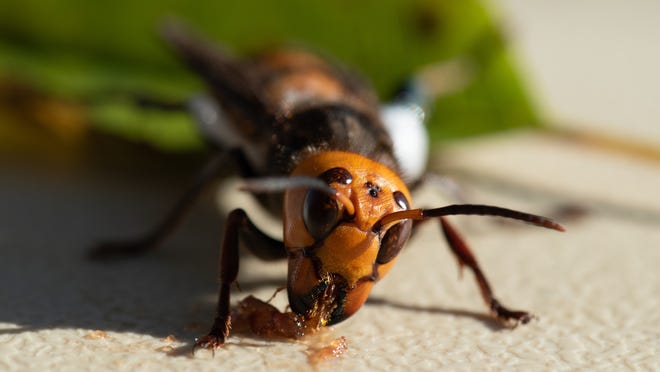
Vice President Samia Suluhu Hassan and President John Magufuli, pictured in July 2019 as they spoke to Kenyan President Uhuru Kenyatta on the phone
Thu, March 18, 2021
Samia Suluhu Hassan is a soft-spoken, Muslim woman thrust from the obscure role of vice president to become Tanzania's first female leader after John Magufuli's sudden death.
Under the constitution, Hassan, the country's 61-year-old vice president, will serve the remainder of Magufuli's second five-year term, which does not expire until 2025.
A former office clerk and development worker, Hassan began her political career in 2000 in her native Zanzibar, a semi-autonomous archipelago, before being elected to the national assembly on mainland Tanzania and assigned a senior ministry.
A ruling party stalwart, she rose through the ranks until being picked by Magufuli as his running mate in his first presidential election campaign in 2015.
The Chama Cha Mapinduzi (CCM) comfortably won and Hassan made history when sworn-in as the country's first-ever female vice president.
The pair were re-elected last October in a disputed poll the opposition and independent observers said was marred by irregularities.
She would sometimes represent Magufuli on trips abroad but many outside Tanzania had not heard of Hassan until she appeared on national television wearing a black headscarf to announce that Magufuli had died at 61 following a short illness.
In a slow and softly spoken address -- a stark contrast to the thundering rhetoric favoured by her predecessor -- Hassan solemnly declared 14 days of mourning.
She will consult the CCM over the appointing of a new vice president.
- 'Hold your breath' -
Analysts say Hassan will face early pressure from powerful Magufuli allies within the party, who dominate intelligence and other critical aspects of government, and would try and steer her decisions and agenda.
"For those who were kind of expecting a breakaway from the Magufuli way of things I would say hold your breath at the moment," said Thabit Jacob, a researcher at the Roskilde University in Denmark and expert on Tanzania.
"I think she will struggle to build her own base... We shouldn't expect major changes."
Her loyalty to Magufuli, nicknamed the "Bulldozer" for his no-nonsense attitude, was called into doubt in 2016.
Her office was forced to issue a statement denying she had resigned as rumours of a rift grew more persistent, and Hassan hinted at the controversy in a public speech last year.
"When you started working as president, many of us did not understand what you actually wanted. We did not know your direction. But today we all know your ambitions about Tanzania's development," she said in front of Magufuli.
- Getting things done -
Hassan was born on January 27, 1960 in Zanzibar, a former slaving hub and trading outpost in the Indian Ocean.
Then still a Muslim sultanate, Zanzibar did not merge formally with mainland Tanzania for another four years.
Her father was a school teacher and mother a housewife. Hassan graduated from high school but has said publicly that her finishing results were poor, and she took a clerkship in a government office at 17.
By 1988, after undertaking further study, Hassan had risen the ranks to become a development officer in the Zanzibari government.
She was employed as a project manager for the UN's World Food Programme (WFP) and later in the 1990s was made executive director of an umbrella body governing non-governmental organisations in Zanzibar.
In 2000, she was nominated by the CCM to a special seat in Zanzibar’s House of Representatives. She then served as a local government minister -- first for youth employment, women and children and then for tourism and trade investment.
In 2010, she was elected to the National Assembly on mainland Tanzania. Then president Jakaya Kikwete appointed her as the Minister of State for Union Affairs.
She holds university qualifications from Tanzania, Britain and United States. The mother of four has spoken publicly to encourage Tanzanian women and girls to pursue their dreams.
"I may look polite, and do not shout when speaking, but the most important thing is that everyone understands what I say and things get done as I say," Hassan said in a speech last year.
Hassan would be the only other current serving female head of state in Africa alongside Ethiopia's President Sahle-Work Zewde, whose role is mainly ceremonial.
str-np/fb/pma
Samia Suluhu Hassan - the woman set to become Tanzania's next president
Thu, March 18, 2021

Samia Suluhu Hassan in October 2015
On Wednesday evening she had the task of announcing to Tanzanians that President John Magufuli had died and now Vice-President Samia Suluhu Hassan is due to take his place as the country's head of state.
First elected as Magufuli's running mate in 2015, she was re-elected last year along with him and according to the constitution, should serve out the rest of the five-year term in the top job.
She is set to become Africa's only current female political head of government - the Ethiopian presidency is a largely ceremonial role - and join a short list of women on the continent who have made it to the top.
The 61-year-old is affectionately known as Mama Samia - in Tanzanian culture that reflects the respect she is held in, rather than reducing her to a gendered role.
But she was a surprise choice for a running mate in 2015, leaping over several other more prominent politicians in the Chama Cha Mapinduzi (CCM) party, which has been in power in one form or another since independence in 1961.
First elected to a public office in 2000, she came to national prominence in 2014 as the vice-chairperson of the Constituent Assembly, created to draft a new constitution. There her calm demeanour in managing occasional outbreaks of pandemonium and the way in which she dealt with some of the more outspoken members earned her plaudits.

Samia Suluhu Hassan has served as President Magufuli's deputy since 2015
In terms of personality she strikes a contrast with Magufuli.
Where he appeared impulsive, not afraid to speak off the cuff and let his feelings be known, she is more thoughtful and considered.
She is also said to be a good listener who believes in following the correct procedures.
'Capable leader'
One MP, January Makamba, who worked with her in the vice-president's office, has called her "the most underrated politician in Tanzania".
"I have observed at close quarters her work ethic, decision-making and temperament. She is a very capable leader," he said.
But where this places her in terms of policy is not yet clear. Most significantly she has to decide whether to continue her predecessor's sceptical approach to dealing with coronavirus.
You may also be interested in:
The cautionary tale of the president who denied Covid
John Magufuli in his own words
Obituary: Tanzania's 'bulldozer' President John Magufuli
The country that's rejecting the Covid vaccine
There was no doubt that she was loyal to the president but she was not afraid to strike out on her own.
Perhaps the most significant evidence of that was in 2017 when she visited opposition leader Tundu Lissu in hospital in the Kenyan capital, Nairobi, after he had survived an assassination attempt.
With people speculating that state agents had been involved, the pictures of the visit sent shockwaves through the country.
Mr Lissu went into exile afterwards - returning briefly to take part in elections last year - but went back to live in Belgium, saying he had received more death threats.
Private person
Despite being vice-president since 2015, and having served as a state minister in the previous government, little is known about Ms Samia's private life.
She was born in January 1960 on Zanzibar - the semi-autonomous islands off the coast of mainland Tanzania. Later she went on to study public administration, first in Tanzania and then as a post-graduate at UK's Manchester University.
In 1978, she married Hafidh Ameir, who is known to be an agricultural academic but has also kept a low profile. Since Ms Samia became vice-president, the two have not been pictured together.
They have four children with one, Mwanu Hafidh Ameir, who is currently a member of Zanzibar House of Representatives.
African female presidents

The role of Ethiopia's President Sahle-Work Zewde is largely ceremonial
1993-1994 - Sylvie Kinigi - caretaker President of Burundi, following the killing of Melchior Ndadaye
2006-2018 - Ellen Johnson Sirleaf - elected President of Liberia
2009 - Rose Francine Rogombé - Interim President of Gabon following the death of Omar Bongo
2012 - Monique Ohsan-Bellepeau - Acting President of Mauritius, after the resignation of Sir Anerood Jugnauth
2012-2014 - Joyce Banda - President of Malawi, after the death of Bingu wa Mutharika
2014-2016 - Catherine Samba-Panza - transitional President of Central African Republic, elected by parliament
2015-2018 - Ameenah Gurib-Fakim - President of Mauritius, elected by parliament
2018-present - Sahle-Work Zewde - President of Ethiopia, elected by parliament









